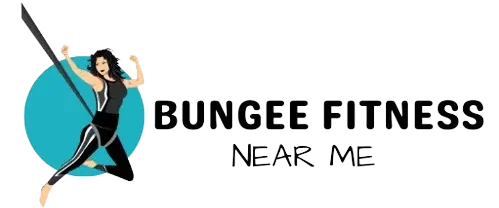Fitting Fitness Into a Busy Schedule: A Practical Guide Using Nursing as an Example

Staying fit isn’t just about appearances or endurance; it’s about maintaining the strength, resilience, and mental clarity needed for a demanding profession. For nurses, fitness becomes even more crucial. Long shifts, lifting patients, and high-stress environments take a toll on the body and mind. Physical fitness supports stamina, prevents injuries, and improves overall mood, all of which are essential in healthcare settings.
However, knowing how important fitness is doesn’t make it easier fitting fitness into a busy schedule. Nurses often find themselves torn between professional responsibilities, continuing education, family time, and personal care. Finding balance can seem impossible.
That’s where this guide steps in – it offers practical, realistic strategies to make fitness a sustainable part of even the busiest routine, using nursing as an example.
1. Prioritize Movement Over Perfection
Many people equate fitness with long, structured gym sessions, but this mindset can discourage progress when time is short. For nurses, the key is shifting focus from perfect routines to incorporating regular movement in any form. A workout doesn’t need to be an hour-long event to be effective. Even 10 to 15-minute bursts of activity can improve cardiovascular health, boost mood, and maintain muscle tone.
This approach helps remove the pressure of “all or nothing” thinking. You might not always have the time or energy for an intense workout, but a short walk, a quick bodyweight circuit, or even dancing to your favorite song at home can make a big difference over time.
2. Lighten the Load: Smart Choices to Free Up Time
In a profession where every second counts, learning how to manage time with smart decisions can make life easier. Nurses often juggle shifts, family responsibilities, and professional development, leaving little room for anything else, and to make balance between work and life many consider using hour tracker. Knowing how to stop wasting time can help free up space for what really matters. One practical way to create breathing space is by choosing flexible education options. Instead of enrolling in traditional on-campus programs, pursuing a DNP degree online can save commuting time and allow for more personalized scheduling. Similarly, using telehealth services for personal medical needs can eliminate long waits at clinics and free up more time for exercise or self-care.
Another simple adjustment is batching errands. Instead of making multiple trips for groceries or pharmacy runs, consolidate them into one outing or use delivery apps when possible. Delegating household tasks and learning to decline non-essential obligations can also lighten the load. Freeing up even an extra thirty minutes a few times a week can give you the opportunity to fit in a meaningful workout without feeling overwhelmed.
3. Embrace Shift-Based Workouts
Nurses’ schedules are often unpredictable, with shifts ranging from early mornings to late nights. Adapting your workout routine to your shift type can make exercise feel less like a burden and more like a support system. For day shift nurses, a quick morning workout can boost energy levels for the day ahead. If you’re working evening or night shifts, a light stretch session before work or a calming yoga routine afterward can help you transition in and out of work mode smoothly.
By acknowledging your body’s rhythm and matching your workouts to your shifts, you avoid the trap of rigid routines that may not align with your energy levels.
4. Use Work Breaks Wisely
When you’re running on a tight schedule, even short breaks at work can be used for meaningful movement. Instead of spending a whole break scrolling through your phone, consider standing stretches, walking around the floor, or doing simple exercises like squats, lunges, or calf raises.
Shoulder rolls, seated leg lifts, and neck stretches can also help relieve muscle tension without needing a gym. It might seem small, but stacking these micro-movements throughout your shift adds up, improving circulation and preventing the physical stiffness that can come from long periods of standing or sitting.

5. Make Your Commute Count
Your commute offers another opportunity to incorporate fitness without needing extra time in your day. If you drive to work, parking farther away from the entrance can help you add some extra steps. If you rely on public transportation, getting off one stop early and walking the remaining distance can provide a valuable mini-workout.
For those living close enough, biking to work could be a practical way to combine cardio exercise with transportation. Making these slight adjustments to your commute keeps you active without having to carve out additional time for traditional workouts.
6. Turn Household Chores Into Exercise
For many nurses, the time spent on housework feels like yet another task to squeeze into an already-packed day. But with a slight shift in mindset, household chores can become part of your fitness routine. Activities like vacuuming, mopping, and gardening can be surprisingly effective forms of physical exercise. Instead of rushing through them, move with intention. Squat while you pick things up. Lunge while vacuuming across a room.
Setting a timer and working in short, energetic bursts can also raise your heart rate and turn basic chores into mini cardio sessions. Not only do you accomplish necessary tasks, but you also keep your body moving without needing to carve out additional time for traditional workouts.
7. Find Accountability Partners
Staying motivated alone is tough, especially with an unpredictable and stressful work schedule. That’s where accountability partners come in. Finding someone who shares similar fitness goals, ideally another nurse or healthcare professional who understands your lifestyle, can help you stay on track.
Partnering up doesn’t have to mean in-person workouts. Virtual check-ins, fitness apps, and group challenges can keep you connected and motivated even when schedules don’t align. Knowing someone is rooting for you—and expecting an update—adds a layer of commitment that can be hard to create on your own.
8. Lean Into Technology
Technology can either distract us or support us, depending on how we use it. For nurses trying to integrate fitness into their hectic lives, it can be a powerful tool. Fitness apps offering quick, targeted workouts, guided stretching sessions, or meditation programs can fit into even the smallest pockets of free time.
Setting reminders to move, tracking daily step counts, or following short video workouts eliminates the need for elaborate planning. On the other hand leveraging digital platforms to schedule workouts and share motivating content is becoming increasingly effective, and partnering with a social media agency in Dubai can help fitness professionals create engaging material tailored specifically for busy individuals like nurses. Some apps even allow you to personalize your goals based on the time you have available and your energy levels that day. Technology gives you the flexibility to stay committed without needing a traditional gym membership or a rigid schedule.
Nursing demands a lot from the mind and body. But taking care of your health will help you excel at what you do: taking care of others. By following these tips, you can create a fitness routine that fits even the busiest schedule. It’s about making fitness a natural, flexible part of your life, not an added pressure. Staying strong and energized doesn’t just benefit you – it ensures that you can continue giving your best to the patients who rely on you every day.
